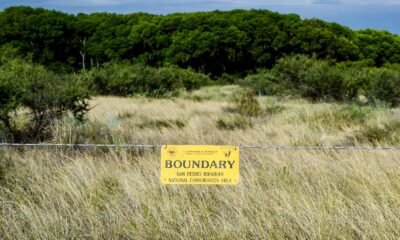2024 election
Abortion Rights Campaign Slams Challenger’s Anti-Abortion Claims as ‘Nonsense’

The Arizona Abortion Access Act is facing scrutiny from the anti-abortion group Arizona Right to Life, which argues against placing the initiative on November’s ballot. Supporters of the act dismiss these claims as unfounded. If approved, Proposition 139 would legally establish the right to an abortion until approximately 24 weeks into pregnancy, with certain exceptions to protect the patient’s health.
Recent confirmation from the Arizona Secretary of State’s Office revealed that the initiative secured around 578,000 valid signatures, surpassing the required 384,000. This achievement marks a historical milestone, as over 800,000 signatures were collected, the most ever for a ballot initiative in the state.
Arizona Right to Life has raised concerns about the initiative’s 200-word summary, claiming it misled petition signers. However, a trial court dismissed their allegations, prompting the group to appeal to the state Supreme Court. In a response filed on Wednesday, Arizona for Abortion Access argued that the Supreme Court was not the appropriate forum for the organization’s grievances.
Andy Gaona, an attorney for the reproductive rights campaign, criticized Arizona Right to Life’s appeal, asserting that their arguments lack merit. “Plaintiff misrepresents the Initiative’s provisions and speculates about its anticipated effects,” Gaona stated, labeling their concerns as baseless.
A key contention from Arizona Right to Life involves the language in the proposal. They assert that the term “health care provider” in the summary suggests a broader interpretation than the full text, which specifies “treating health care provider.” They argue that this could mislead signers regarding who makes critical medical decisions concerning abortion after fetal viability.
Trial court Judge Melissa Iyer Julian found this argument unconvincing, underscoring that medical decisions fall to the provider actively involved in patient care. She noted that such providers could include various medical professionals responsible for the patient’s health during pregnancy.
Gaona defended the summary, emphasizing its adherence to state law and its clarity regarding the initiative’s major provisions. He also countered claims that the summary should detail the potential impacts of the amendment on existing state abortion laws. He explained that current laws, including a 15-week gestational ban, could be affected if the initiative passes, but speculating on those impacts would be premature.
“The voters have not yet voted on the Initiative,” Gaona explained. If it passes, the courts will interpret how existing regulations relate to the new law, a determination that cannot be made in advance.
Gaona urged the Arizona Supreme Court to uphold the trial court’s ruling, enabling the Abortion Access Act to appear on the ballot. Meanwhile, Jill Norgaard, speaking for Arizona Right to Life, admitted she had not reviewed the most recent filing from Arizona for Abortion Access.
In a notable development, Arizona Supreme Court Justice Clint Bolick has recused himself from the case, with Retired Justice John Pelander stepping in to fill his role. Justice Bolick’s prior connections to anti-abortion legislation raise questions about impartiality, as his wife was a key sponsor of a bill restricting abortions in the state.
The Arizona Supreme Court is expected to deliver a decision by August 22, coinciding with the deadline for ballot printing.


















